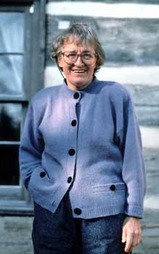Elisabeth Kubler-Ross was a Swiss-American psychiatrist born in Zurich, Switzerland.
When she moved to the US in 1958, she was shocked by the way hospitals dealt with dying patients. She found that everything was “huge and very depersonalized, very technical” and that terminally ill patients were often left alone, with nobody to talk to.
In response, she began running a seminar for medical students at the University of Colorado where she would interview people who were dying about how they felt about death.
These interviews led to her groundbreaking book “On Death and Dying” (1969), in which she discussed how patients talk about dying and how end-of-life care could be improved.
Her work challenged the authoritarian decorum and puritanism of the day, and her book became a bestseller, inspiring letters from patients and doctors all over the world.
Elisabeth was also one of the central figures in the hospice care movement. She believed that euthanasia prevents people from completing their

“unfinished business” and founded “Shanti Nilaya” (Home of Peace), a healing center near San Diego. Her work has helped to change the way we think about death and dying, and her legacy continues through the EKR Foundation, a non-profit organization inspired by her life. (The beginning of modern day hospices)
Elisabeth did face criticism for her work on death and dying. Her theory of the five stages of grief, also known as the “Kübler-Ross model”, has been widely debated and criticized.
Some critics argue that the stages are too rigid and do not accurately reflect the complex emotions that people experience when grieving. Others have pointed out that the stages were initially meant to describe the grief that someone confronting the end of their own life will face, but they are often used to forecast the course of grief that a bereaved person will experience. Despite these criticisms, her work has had a profound impact on our understanding of death and dying, and her legacy continues to influence the field today.




